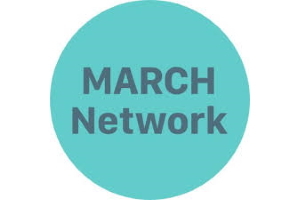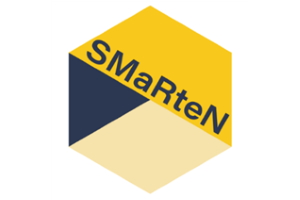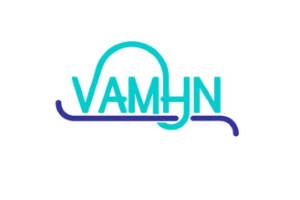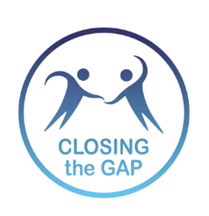Partnership working in mental health research

Partnership working in mental health research can help make your research more impactful.
Whether your collaborations are with charities, community organisations, schools, content creators or businesses, by working in partnership you can build upon the expertise of both partners and work together to make sure more people are aware of your research.
Just like inclusive research that tackles inequalities, multidisciplinary research, and learning from people with lived experience, partnership working is all about collaboration, listening and communication.
Our top tips for partnership working:
Here are our top tips for successful partnership working in mental health research:
- Find organisations with shared goals or values.
- Working together from the beginning of a project will be more effective and authentic than trying to find a partner for an existing study.
- Take time to understand what is most important to your potential partner and how working together might help achieve their own objectives. For example, arranging a phone call or meeting for coffee rather than just sending an email about your project.
- Building partnerships takes time so it is a great idea to build connections and relationships before you have a specific ask.
- Think broadly and creatively about what you can offer each other as partners. Your potential partner can offer much more than a mechanism for recruiting participants. And you can offer beneficial opportunities for them too.
- Ideally making connections and building relationships with more than one person at a partner organisation at senior and day-to-day levels in case individuals move on.
- At the right stage, working on a partnership agreement can be helpful. It ensures all partners are very clear of their roles, responsibilities and objectives and avoids assumptions and misunderstandings.
We wanted to celebrate great examples and tips for partnership working across the UK Research and Innovation (UKRI) funded mental health research networks. We’ve featured one partnership per network so that we can go into some detail, but there are plenty more examples from across the networks below.
If you want to hear about the networks and successful partnerships in more detail, we are holding an online workshop on 22 November where they’ll share their successes, challenges and top tips for partnership working. See the ‘Events’ page to book your place.
 Emerging Minds
Emerging Minds
Tips for Engaging the Voluntary Sector – with Pam Miller, Interim Head of Research at NSPCC
Pam Miller shares her tips and advice for working with the voluntary sector. She shares how to reach out to organisations in a way that is likely to get a response, as well as common mistakes and pitfalls. A must-listen for anyone interested in partnership mental health research!
Closing The Gap
Smoking and mental health videos with Action for Smoking Health (ASH)
Closing The Gap partnered with ASH and The University of Bath to produce videos showing the journey of smokers with mental health conditions who’ve successfully quit. They wanted to call on health professionals to do more to help others do the same.
 eNurture
eNurture
eNurture has partnered with schools throughout the networks’ lifetime. Their main school partners are Commonweal School in Swindon and Preston School in Taunton) and Rhiwbeina Primary School in Cardiff. When they created their Youth Engagement Guide, it was a real team effort between the network, young people, schools and researchers involved in the network.
The result? An essential guide for researchers planning on working with young people, filled with tips, advice and best practice. Read it here.
 MARCH
MARCH
MARCH network partnered with The Natural History Museum, The Horniman Museum and Valence house for the project Give: Volunteering for well-being.
This project aimed to make volunteering more accessible for people experiencing health inequality. MARCH worked with the museums to develop new volunteer programmes to support volunteers’ personal well-being. Read the evaluation report here.
 Loneliness and Social Isolation in Mental Health Research Network (LSIMHRN)
Loneliness and Social Isolation in Mental Health Research Network (LSIMHRN)
All of LSIMHRN’s funded Plus Projects involved a non-academic partner. You can take a look at all the projects here. However, one great example is Songs from Home, a research project looking at using online songwriting to address postnatal depression (PND) in mothers.
Songs from Home researchers partnered with Happity, an online platform for baby and toddler group classes. Happity provided a direct link between the researchers and the mothers struggling with PND, as well as sharing expertise on online community building. This ensured the project was inclusive and feasible.
 SMaRteN
SMaRteN
All Things Mental Health – Keeping Students in The Minds
Working with the team behind the existing All Thing Mental Health podcast and the PhDeets podcast, SMaRteN created a new series – Keeping Students in Mind: Understanding Student Mental Health Research.
Together, they recruited and trained four student podcast hosts who each then generated their own podcast episode where they interviewed a SMaRteN researcher about their work. Students applied with an initial idea about an area of student mental health they felt passionately about and SMaRteN worked with them to develop this and ‘match’ them with a suitable SMaRteN project.
The students were paid for their time, so this was a brilliant opportunity for them to take on a professional development role but also allowed them to amplify the voice of students within the sphere, alongside shining a light on important work and highlighting findings to new audiences. Keep an eye on the SMaRteN website for the second series.
 TRIUMPH
TRIUMPH
The project brings together The Fostering Network with academic researchers to look at the best way to deliver mental health interventions for care-experienced young people in Wales during the COVID-19 pandemic.
The Fostering Network was an essential part of this project. Their role included:
- facilitating advisory groups for recommendations for policy
- recruiting young people and carers to take part in the study
- being the main contact for the young people who helped shape and design the research
- using their forums to discuss findings; and
- promoting the study via their mailing lists.
 Violence and Abuse Mental Health Research Network
Violence and Abuse Mental Health Research Network
VAMHN partnered with the Social Psychiatry and Psychiatric Epidemiology Journal to coordinate a linked series on violence, abuse and women’s mental health.
One publication came from a charity (AVA), and many commentaries have been published as part of this series from members of the third sector and people with lived experience. View the series here.
